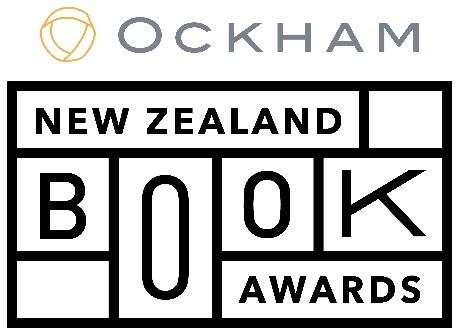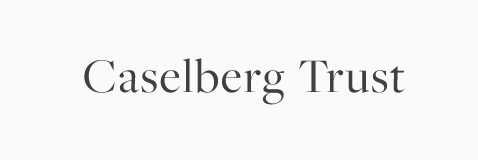Forty books traversing the cultural, historic, artistic and social landscape of Aotearoa New Zealand have made the longlist for the prestigious Ockham New Zealand Book Awards, announced today.
Ten books are longlisted in each of the four awards’ categories – fiction, general non-fiction, illustrated non-fiction and poetry. Together, they offer riches from both literary luminaries and our rising stars.
New Zealand Book Awards Trust chair Nicola Legat says the Awards received a large number of entries again this year and the standard was extremely high across all categories. “Clearly New Zealand publishing, and indeed our literature, is in excellent health. What to read over summer? Look no further than these 40 fine books.”
The 2018 Ockham New Zealand Book Awards longlisted titles are:
Fiction (The Acorn Foundation Fiction Prize):
- The New Animals by Pip Adam (Victoria University Press)
- The Beat of the Pendulum by Catherine Chidgey (Victoria University Press)
- The Earth Cries Out by Bonnie Etherington (Vintage, Penguin Random House)
- Salt Picnic by Patrick Evans (Victoria University Press)
- Sodden Downstream by Brannavan Gnanalingam (Lawrence & Gibson)
- Heloise by Mandy Hager (Penguin Random House)
- Iceland by Dominic Hoey (Steele Roberts Aotearoa)
- Baby by Analeese Jochems (Victoria University Press)
- Tess by Kirsten McDougall (Victoria University Press)
- Five Strings by Apirana Taylor (Anahera Press)
General Non-Fiction (The Royal Society Te Ap?rangi Award):
- Dancing with the King: The Rise and Fall of the King Country, 1864-1885 by Michael Belgrave (Auckland University Press)
- T?ngata Ng?i Tahu: People of Ng?i Tahu edited by Helen Brown and Takerei Norton (Te R?nanga Ng?i Tahu and Bridget Williams Books)
- Fearless: The Extraordinary Untold Story of New Zealand’s Great War Airmen by Adam Claasen (Massey University Press)
- Phoney Wars: New Zealand Society in the Second World War by Stevan Eldred-Grigg with Hugh Eldred-Grigg (Otago University Press)
- The 9th Floor: Conversations with Five New Zealand Prime Ministers by Guyon Espiner and Tim Watkin (Bridget Williams Books)
- Cleansing the Colony: Transporting Convicts from New Zealand to Van Diemen’s Land by Kristyn Harman (Otago University Press)
- Tears of Rangi: Experiments Across Worlds by Anne Salmond (Auckland University Press)
- Drawn Out: A Seriously Funny Memoir by Tom Scott (Allen & Unwin NZ)
- Driving to Treblinka: A Long Search for a Lost Father by Diana Wichtel (Awa Press)
- A Strange Beautiful Excitement: Katherine Mansfield’s Wellington by Redmer Yska (Otago University Press)
Illustrated Non-Fiction:
- New China Eyewitness: Roger Duff, Rewi Alley and the Art of Museum Diplomacy edited by James Beattie and Richard Bullen (Canterbury University Press)
- Strangers Arrive: Emigrés and the Arts in New Zealand, 1930-1980 by Leonard Bell (Auckland University Press)
- Good-bye Maoriland: The Songs and Sounds of New Zealand’s Great War by Chris Bourke (Auckland University Press)
- Teenagers: The Rise of Youth Culture in New Zealand by Chris Brickell (Auckland University Press)
- Tuai: A Traveller in Two Worlds by Alison Jones and Kuni Kaa Jenkins (Bridget Williams Books)
- Ten x Ten: Art at Te Papa edited by Athol McCredie (Te Papa Press)
- Undreamed of … 50 years of the Frances Hodgkins Fellowship by Priscilla Pitts and Andrea Hotere (Otago University Press)
- T?tara: A Natural and Cultural History by Philip Simpson (Auckland University Press)
- Gordon Walters: New Vision by Zara Stanhope (commissioning editor), Lucy Hammonds, Laurence Simmons, Julia Waite (Auckland Art Gallery Toi o T?maki and Dunedin Public Art Gallery)
- The Face of Nature: An Environmental History of the Otago Peninsula by Jonathan West (Otago University Press)
Poetry:
- Flow: Whanganui River Poems by Airini Beautrais (Victoria University Press)
- Anchor Stone by Tony Beyer (Cold Hub Press)
- The Internet of Things by Kate Camp (Victoria University Press)
- The Ones Who Keep Quiet by David Howard (Otago University Press)
- Tightrope by Selina Tusitala Marsh (Auckland University Press)
- Fully Clothed and So Forgetful by Hannah Mettner (Victoria University Press)
- Night Horse by Elizabeth Smither (Auckland University Press)
- What is Left Behind by Tom Weston (Steele Roberts Aotearoa)
- R?w?hi by Briar Wood (Anahera Press)
- The Yield by Sue Wootton (Otago University Press)
The Ockham New Zealand Book Awards shortlist will be announced on 6 March 2018. The winners (including of the four Best First Book Awards and a M?ori Language Award, presented at the judges’ discretion) will be announced at a ceremony on May 15 2018, held as the first public event of the Auckland Writers Festival. 2018 will mark the 50th anniversary of the first book awards ceremony in New Zealand, presented in 1968 as the Wattie Book Awards.
To find out more about the longlisted titles go to http://www.nzbookawards.nz/new-zealand-book-awards/2018-awards/longlist/
The $50,000 Acorn Foundation Fiction Prize for 2018 will be judged by novelist, poet and academic Anna Smaill, journalist and reviewer Philip Matthews, and award-winning bookseller and reviewer Jenna Todd. They will be joined in deciding the ultimate winner from their shortlist of four by a high-profile international judge.
The Royal Society Te Ap?rangi Award for General Non-Fiction will be judged by lecturer in the M?ori faculty at the Auckland University of Technology Dr Ella Henry, editor and award-winning journalist Toby Manhire, and former bookseller and publisher Philip King.
The Illustrated Non-Fiction Award will be judged by Professor of History at the University of Otago and winner of the Illustrated Non-Fiction prize in 2017 Barbara Brookes, curator M?tauranga M?ori at Te Papa Matariki Williams (T?hoe, Taranaki, Ng?ti Hauiti, Ng?ti Whakaue), and director of the public art gallery Objectspace Kim Paton.
The Poetry Award will be judged by poet, novelist and creative non-fiction writer Alison Wong, poet and deputy chief executive, M?ori, at Manukau Institute of Technology Robert Sullivan, and Otago poet, publisher, editor and librettist Michael Harlow.
Editor’s Notes:
The Ockham New Zealand Book Awards are the country’s premier literary honours for books written by New Zealanders. First established in 1968 as the Wattie Book Awards (later the Goodman Fielder Wattie Book Awards), they have also been known as the Montana New Zealand Book Awards and the New Zealand Post Book Awards. Awards are given for Fiction (the Acorn Foundation Fiction Prize), General Non-Fiction (the Royal Society Te Ap?rangi Award for General Non-Fiction), Illustrated Non-Fiction and Poetry. There are also four Best First Book Awards and, at the judges’ discretion, a M?ori Language Award. The awards are governed by the New Zealand Book Awards Trust (a registered charity). Members of the Trust are Nicola Legat, Karen Ferns, Paula Morris, Catherine Robertson, Rachel Eadie, David Bowles, Pene Walsh and Melanee Winder. Creative New Zealand is a significant annual funder of the awards. The Trust also governs the New Zealand Book Awards for Children and Young Adults and Phantom Billstickers National Poetry Day.
Ockham Residential Group is Auckland’s most progressive developer. Founded in 2009 by Mark Todd and Ben Preston, Ockham describes itself as an urban regenerator, a company that loves Auckland. Ockham wants to see Auckland’s built environment become as beautiful and as world-class as its natural landscape. The business has ambitions wider than profitability, and has also established the Ockham Foundation. The Ockham Foundation aims to promote original thinking and critical thought — two key elements of widening the public discourse — via educational initiatives. It works with the University of Auckland to fund First Foundation Scholars studying science, and is a major sponsor to Ng? Rangatahi Toa, a charity transforming the lives of Rangatahi excluded from education.
The Acorn Foundation is a community foundation based in the Western Bay of Plenty, which encourages people to leave a gift in their wills and/or their lifetimes to support their local community forever. Donations are pooled and invested, and the investment income is used to make donations to local charities, in accordance with the donors’ wishes. The capital remains intact. Since it was established in 2003, Acorn has distributed over $4.6 million. Donors may choose which organisations are to benefit each year, or they may decide to leave it to the trustees’ discretion. Community foundations are the fastest growing form of philanthropy worldwide, and there are now 15 throughout New Zealand, with more in the early stages. The Book Awards’ $50,000 Acorn Foundation Fiction Prize has been provided through the generosity of one of the Foundation’s donors, and will be awarded to the top fiction work each year, in perpetuity.
Royal Society Te Ap?rangi is an independent not-for-profit organisation that supports all New Zealanders to explore, discover and share knowledge. Its varied programmes provide funding and learning opportunities for researchers, teachers, school students, together with those who are simply curious about the world. To celebrate the discoveries of New Zealand researchers, the Society awards medals and elects Fellows, who are leaders in their fields. These experts help the Society to provide independent advice to New Zealanders and the government on issues of public concern. The Society has a broad network of members and friends around New Zealand and invites all those who value the work New Zealanders do in exploring, discovering and sharing knowledge to join with them.
Creative New Zealand has been a sustaining partner of New Zealand’s book awards for decades. Creative New Zealand encourages, promotes and supports the arts in New Zealand for the benefit of all New Zealanders through funding, capability building, an international programme, and advocacy. It offers financial support for emerging and established artists, art practitioners, groups and organisations, and provides training and online resources to help artists and practitioners develop professionally, grow audiences and markets, and manage their organisations. It also supports internships and national touring to help develop New Zealand arts. Creative New Zealand provides a wide range of support to New Zealand literature, including funding for writers and publishers, residencies, literary festivals and awards, and supports organisations which work to increase the readership and sales of New Zealand literature at home and internationally.
Book Tokens (NZ) Ltd underwrites the sale of book tokens within New Zealand. It is administered by Booksellers New Zealand.
The Auckland Writers Festival is the largest literary event in New Zealand and the largest presenter of New Zealand literature in the world. Now in its 18th year, it hosts more than 200 local and international writers for six days of discussion, conversation, reading, debate, performance, schools, family and free events ranging across fiction, non-fiction, poetry, music, theatre, culture, art and more. Festival attendance in 2017 exceeded 73,000.




